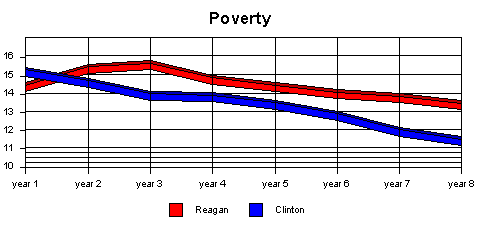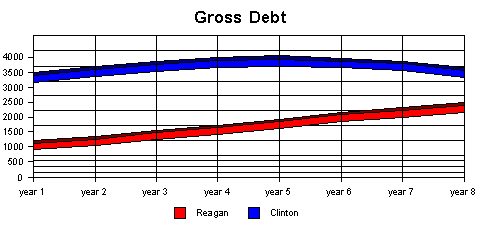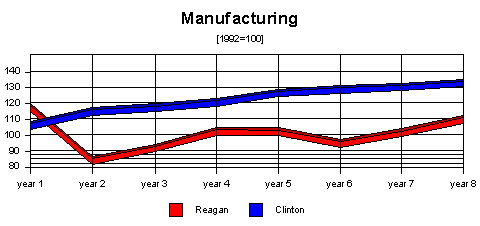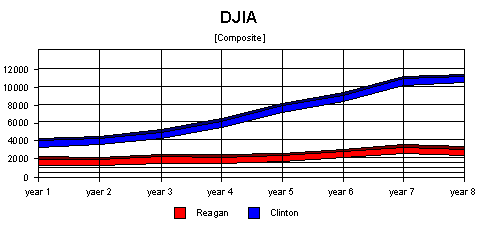
Unemployment declined on average for both presidents. The spike in years 1-3 are a result of a very severe recession. Mr. Reagan presided over the highest unemployment rate since 1941 in 1982 and 1983. Unemployment peaked in 1982 but remained historically high throughout his presidency. Average unemployment under Mr. Reagan was 7.54% and 5.20% under Mr. Clinton. Mr. Clinton gave us the lowest unemployment rate in 30 years.










Comment